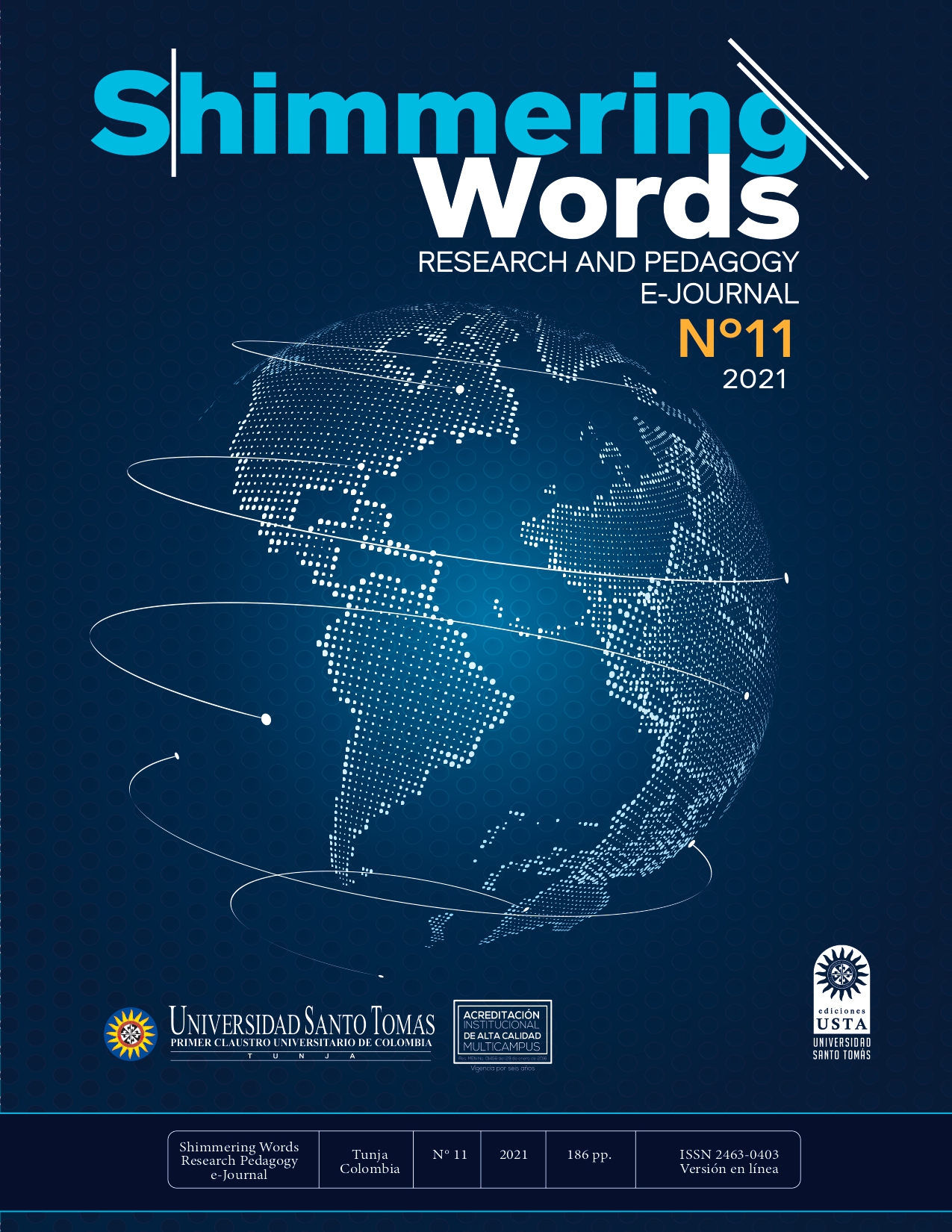Les cours ESP sont-ils nécessaires? Les perspectives des étudiants et des diplômés d’une université du nord du Mexique
##plugins.themes.bootstrap3.article.main##
Résumé
Nowadays, university students need to be proficient in English if they want to be competitive in the globalized world. Nevertheless, studies show that when finishing university, not all Mexican students achieve this proficiency as they are not always interested in English classes. English for specific purposes (ESP) courses could aid in the motivation of university students, as they are designed according to the learners’ needs of a specific field. The present paper is derived from two bachelor thesis and explores the needs of including ESP courses in four high-demand majors in a Mexican university in the North of Mexico, Medicine, Chemical Engineering, Aerospace Engineering, and Business Administration, based on the perceptions of 77 students and graduates from these programs. Findings suggest that ESP courses are necessary at the university level as they can positively impact the professional development of students, provided that they are well-designed and that they complement the general English courses that students take, through the acquisition of jargon and the development of the students’ communicative competence.
##plugins.themes.bootstrap3.article.details##
Comment citer
Rivera Hernández, B. M., Rodríguez Quintana, C. V., & Flores Delgado, L. D. (2022). Les cours ESP sont-ils nécessaires? Les perspectives des étudiants et des diplômés d’une université du nord du Mexique. Shimmering Words: Research and Pedagogy E-Journal, 11, 118-133. Consulté à l’adresse http://revistas.ustatunja.edu.co/index.php/shimmering/article/view/2470
Numéro
Rubrique
Artículos

Ce travail est disponible sous licence Creative Commons Attribution - Pas d’Utilisation Commerciale - Partage dans les Mêmes Conditions 4.0 International.
Références
Anthony, L. (2019). Introducing English for specific purposes. Routledge, Taylor & Francis.
Basturkmen, H. (2003). Specificity and Esp course design. RELC Journal, 34(1), 48-63. doi:10.1177/003368820303400104
Brown, J. D. (2009). Foreign and second language needs analysis. The Handbook of Language Teaching, 267-293. doi:10.1002/9781444315783.ch16
Creswell, J. W. (2014). A concise introduction to mixed methods research. Thousand Oaks: Sage.
Dudley-Evans, T., & St John, M. J. (2009). Developments in English for Specific Purposes: A multidisciplinary approach. Cambridge: Cambridge University Press.
Fiorito, L. (2006). Teaching english for specific purposes (ESP). Retrieved June 11, 2021, from https://www.usingenglish.com/teachers/articles/teaching-english forspecific-purposes-esp.html
García, M. D. (1999). The development of ESP: Language description and its influence of pedagogical materials. LFE: Revista De Lenguas Para Fines Específicos, 6, 203-228.
Georgieva, V. (2010). Teaching Terms Effectively in ESP. Retrieved from https:// www.researchgate.net/publication/265229435_TEACHING_TERMS_ EFFECTIVELY_IN_ESP
Glaser, B. G., & Strauss, A. (1967). The Discovery of grounded theory: Strategies for qualitative research. New York: Aldine Publishing.
Hosni, S. A. (2014). Speaking difficulties encountered by young EFL learners. International Journal on Studies in English Language and Literature (IJSELL), 2(6), 22-30.
Hutchinson, T., & Waters, A. (2010). English for Specific Purposes. Cambridge: Cambridge University Press (Virtual Pub.). doi:https://doi.org/10.1017/CBO9780511733031
Kavaliauskiene, G. (2002). Aspects of learning ESP at university. ESP World, 2(2), 1-12.
Soruc, A. (2012). The role of needs analysis in language program renewal process. Mevlana International Journal of Education (MIJE), 2(1), 36-47.
Webber, L. (2016). The importance of the English language in today’s world. Retrieved June 11, 2021, from https://www.linkedin.com/pulse/importance-english languagetodays-world-liam-webber
Xhaferi, B. (2009). Teaching and learning ESP vocabulary. LFE: Revista De Lenguas Para Fines Específicos, 15, 229-255.
Basturkmen, H. (2003). Specificity and Esp course design. RELC Journal, 34(1), 48-63. doi:10.1177/003368820303400104
Brown, J. D. (2009). Foreign and second language needs analysis. The Handbook of Language Teaching, 267-293. doi:10.1002/9781444315783.ch16
Creswell, J. W. (2014). A concise introduction to mixed methods research. Thousand Oaks: Sage.
Dudley-Evans, T., & St John, M. J. (2009). Developments in English for Specific Purposes: A multidisciplinary approach. Cambridge: Cambridge University Press.
Fiorito, L. (2006). Teaching english for specific purposes (ESP). Retrieved June 11, 2021, from https://www.usingenglish.com/teachers/articles/teaching-english forspecific-purposes-esp.html
García, M. D. (1999). The development of ESP: Language description and its influence of pedagogical materials. LFE: Revista De Lenguas Para Fines Específicos, 6, 203-228.
Georgieva, V. (2010). Teaching Terms Effectively in ESP. Retrieved from https:// www.researchgate.net/publication/265229435_TEACHING_TERMS_ EFFECTIVELY_IN_ESP
Glaser, B. G., & Strauss, A. (1967). The Discovery of grounded theory: Strategies for qualitative research. New York: Aldine Publishing.
Hosni, S. A. (2014). Speaking difficulties encountered by young EFL learners. International Journal on Studies in English Language and Literature (IJSELL), 2(6), 22-30.
Hutchinson, T., & Waters, A. (2010). English for Specific Purposes. Cambridge: Cambridge University Press (Virtual Pub.). doi:https://doi.org/10.1017/CBO9780511733031
Kavaliauskiene, G. (2002). Aspects of learning ESP at university. ESP World, 2(2), 1-12.
Soruc, A. (2012). The role of needs analysis in language program renewal process. Mevlana International Journal of Education (MIJE), 2(1), 36-47.
Webber, L. (2016). The importance of the English language in today’s world. Retrieved June 11, 2021, from https://www.linkedin.com/pulse/importance-english languagetodays-world-liam-webber
Xhaferi, B. (2009). Teaching and learning ESP vocabulary. LFE: Revista De Lenguas Para Fines Específicos, 15, 229-255.

